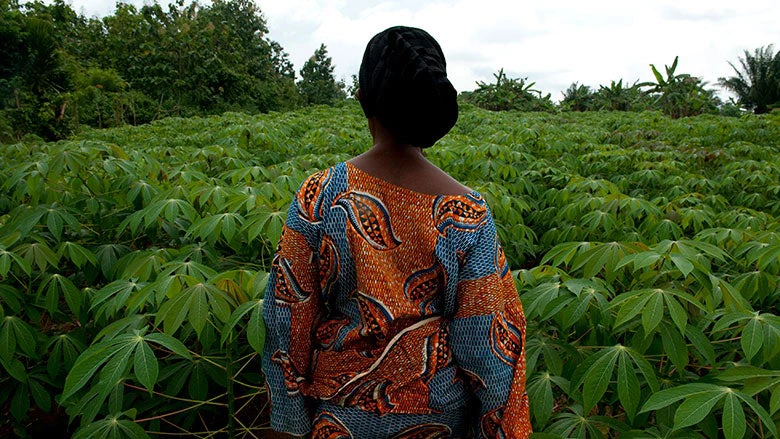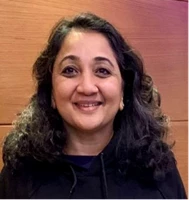Contrary to common belief, evidence suggests that women’s empowerment may increase the risks of gender-based violence, at least in the short term. This was also borne out by the rigorous Gender-Based Violence (GBV) risk assessment we recently undertook in the context of the Nigeria for Women Project (NFWP). In our research, we asked ourselves; would a focus on women’s social and economic empowerment increase risks of gender-based violence in Nigeria? What would be the causal factors? What measures could form part of the project design to address these risks from and to the project?
The Nigeria For Women project aims to support women’s membership in Women Affinity Groups (WAGs) – community-based institutions of women, in selected states of Nigeria. The project is also supporting livelihoods improvement for individual women and their collectives through financial grants, business advisory services, better access to markets, livelihoods and personal initiative skills, and innovations. The GBV risk assessment, which aimed to identify the GBV risks and possible mitigation options with the NFWP, confirmed that women who realize improved livelihoods opportunities, a greater voice and better decision-making power, could experience “backlash” from their intimate partners as well as family and community members. This essentially stems from the community and household level power dynamics where the gender roles are defined and enforced through social norms that regard men as the providers and women as the caretakers. Shifts in these roles as women’s economic contributions to the household increase or when they exercise autonomy, opinions and voice, as a result of interventions through a program like the NFWP, would lead to a backlash. The more entrenched these social norms, the bigger the backlash. A woman from Edo State summed it up by saying, “a man is proud and conscious of his position as the head of the home…an empowered woman who does not respect her husband or is authoritative in her demeanor will attract battering from her husband, and dislike from his relatives.”
On the other hand, it found that women who are economically active are at a higher risk of non-partner sexual assault. For example, a male respondent from Katsina said, “there was a time I saw a Lebanese woman in Kano selling beautiful abbayas, I would have loved for my wife to do this—but I am scared that she could easily fall pray into the hands of all those rough guys and nothing will happen if she is raped or assaulted.”
Building on this analysis that not only identified risks but also opportunities for integrating risk prevention and mitigation measures in the project design, the NFWP team embedded key measures into the project design such as (i) creating an enabling environment for women’s participation through strategic and behavior change communication, targeting religious and traditional leaders, community members both men and women; (ii) ensuring safety and security of particular women groups in the target communities; (iii) age-, gender-, and culturally appropriate ways to facilitate participation of women in Women Affinity Groups, and in the planning, design, implementation, and monitoring and evaluation of individual and collective livelihoods; (iv) enhancing community awareness, capacities and strengths of project beneficiary communities, implementing partners and government staff in preventing and reducing risks of GBV; and (v) mapping of the existence of and gaps in services for survivors.
Specific interventions acknowledged for reducing the incidence of GBV in Nigeria and globally, are part of NFWP. For example, on GBV prevention, the project is investing in creation of an enabling environment for women through a social norm change campaign that will aim to reach the most marginalized women (young and married) through multiple modes of communications and outreach, enlist the support of village elders and others respected and trusted by the community and reduce stigma associated with women “empowerment” programs. The project will also implement the evidence-based gender dialogue groups model that facilitates non-violent conflict resolution and joint decision making between men and women through simple discussions on child-rearing, household budgeting, etc.
The project also aims to enhance the community level response to GBV in project areas by identifying and training selected affinity group members as non-specialized GBV first responders. Other measures include capacity support to respective project implementing units on survivor-centered approach to GBV prevention and response, enforcing codes of conduct for all parties associated with the project and a GBV sensitive Grievance Redress System in line with guidance provided in the World Bank Good Practice Note on addressing GBV risks in infrastructure projects.
The NFWP is the first-stand-alone women’s project in the Nigeria portfolio which is seeking to establish and strengthen women’s economic empowerment as critical for inclusive poverty reduction in Nigeria. NFWP can indeed bring down barriers to gender equality, however addressing GBV will be a critical element. This GBV risk assessment is a tool to achieve this larger goal and we hope will serve as a model for other World Bank-financed projects in Nigeria and beyond. As implementation of NFWP progresses, we look forward to sharing experiences and lessons on addressing the most perverse form of gender inequality, that is, gender-based violence.




Join the Conversation